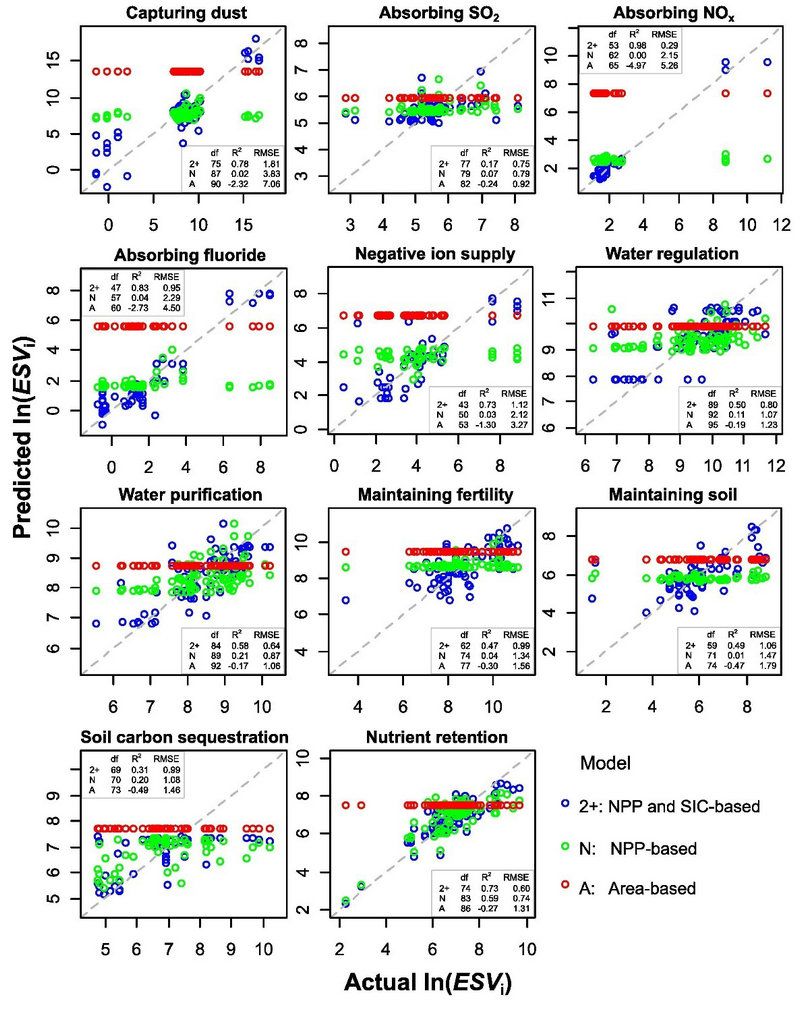Ecosystem services are an important tool for Ecological Civilization Construction and an agent of clear water and green mountains becoming mountains of silver and gold. Rapid valuation of ecosystem services is an essential way to achieve the large-scale application of ecosystem services. However, conventional valuation of ecosystem services using primary data requires complex statistics that make it difficult to assess in practice, specifically in terms of many indicators, time-consuming and costly. The benefit transfer based on a single indicator (e.g., primary productivity, service value per unit area of land use/land cover), which is commonly used at present, is considered to ignore the structure and function characteristics of ecosystems. This single-indicator value transfer does not use validation techniques and shows low spatial consistency with the assessment results using primary data.
A recent research result of Prof. Shao-Lin Peng's group in the School of Life Sciences, Sun Yat-sen University, “Are productivity and biodiversity adequate predictors for rapid assessment of forest ecosystem services values?”, collected 847 data on 11 forest ecosystem services in China and originally proposed to use a few key indicators based on biodiversity and ecosystem functions to implement rapid valuation of ecosystem services.
In this study, the results showed that rapid valuation of multiple ecosystem services can be achieved using species richness classes (SIC) and net primary productivity (NPP), with valuation models for seven of these services explaining more than 50% (R2) of the original assessment. SIC and NPP played different magnitudes of importance within each service, but not all services were significantly influenced by these two indicators. This rapid valuation model, based on biodiversity and ecosystem function, outperformed both unit area-based and NPP-based single indicator approaches (Figure below). The results provide a new means and evidence to support the rapid valuation of ecosystem services for areas constrained by budget and data limitations, which has positive implications for the future sustainable use of ecosystem resources on a global scale.

Figure: Comparing the model performance of three ecosystem service valuation approaches
The results were recently published in Ecosystem Services. Peng Zhou, a Ph.D. student in the School of Life Sciences at Sun Yat-sen University, is the first author of the paper, and Prof. Shao-Lin Peng and Associate Prof. Ting Zhou are corresponding authors of the paper.
Link to the paper: https://www.sciencedirect.com/science/article/pii/S2212041622000626
